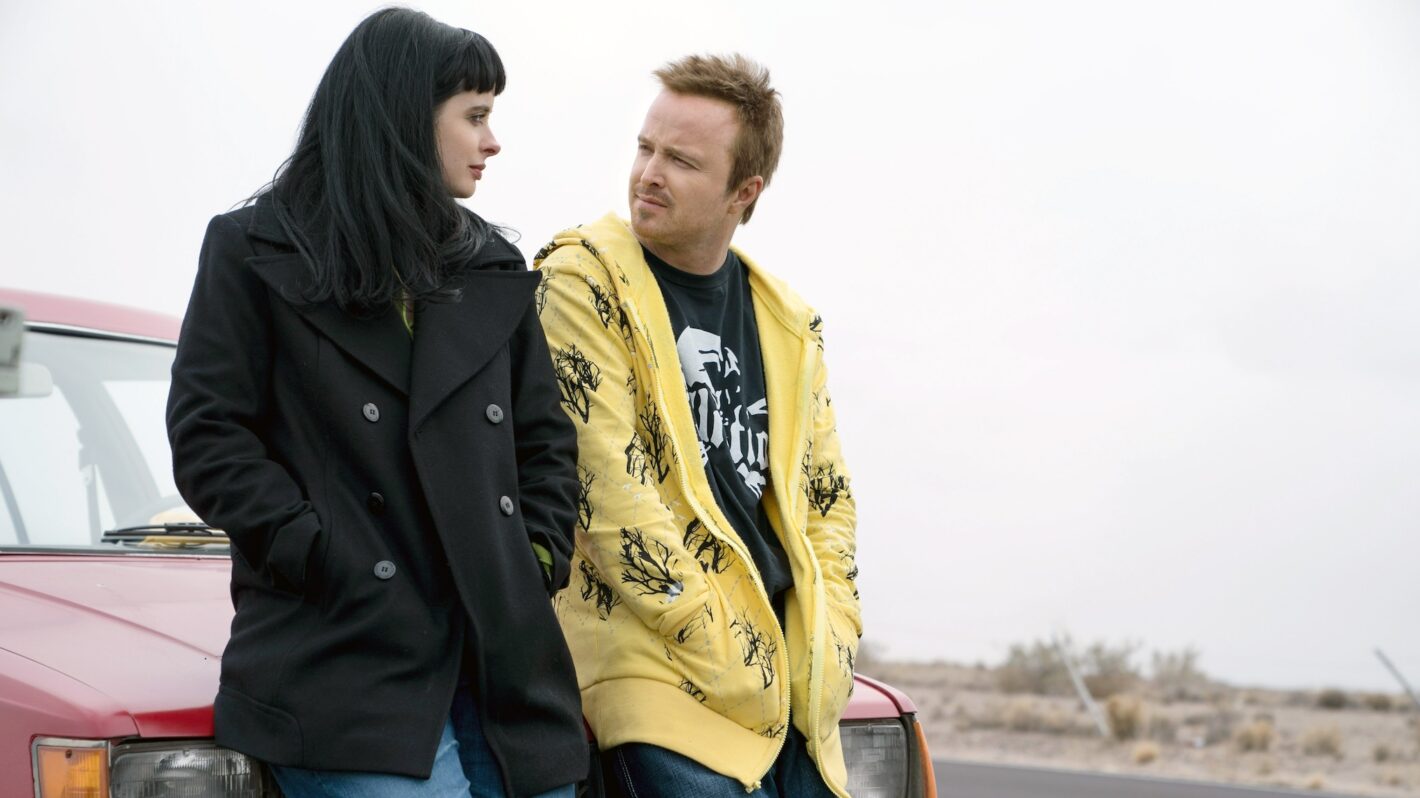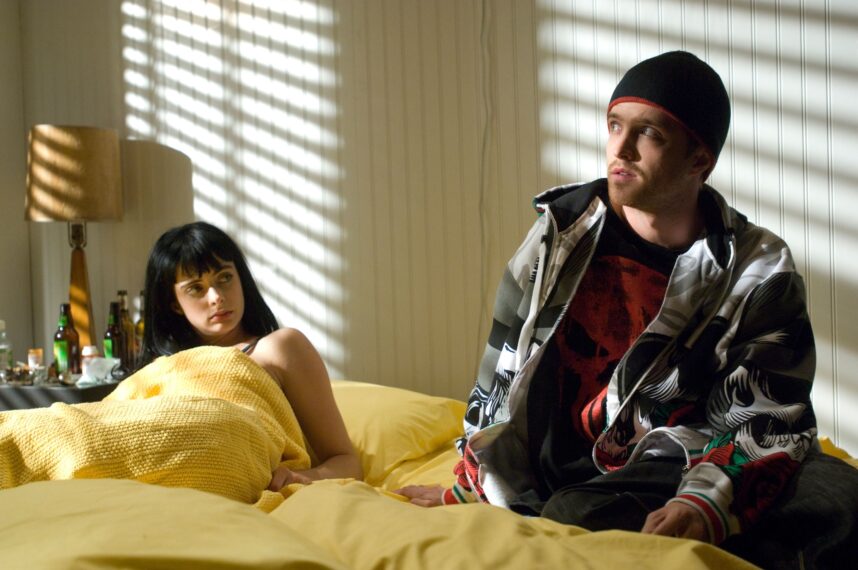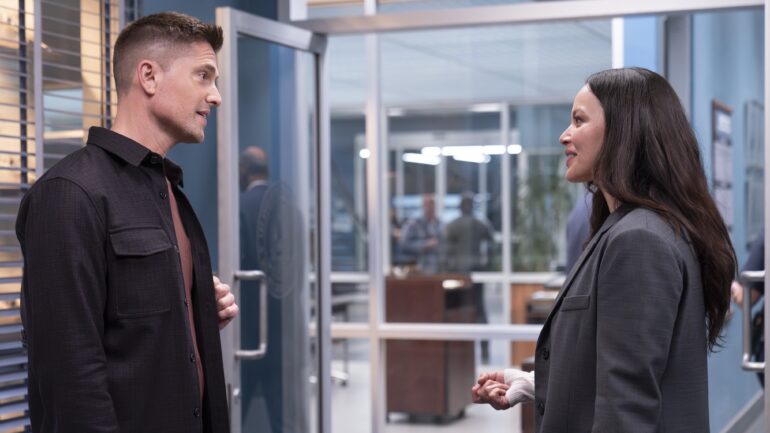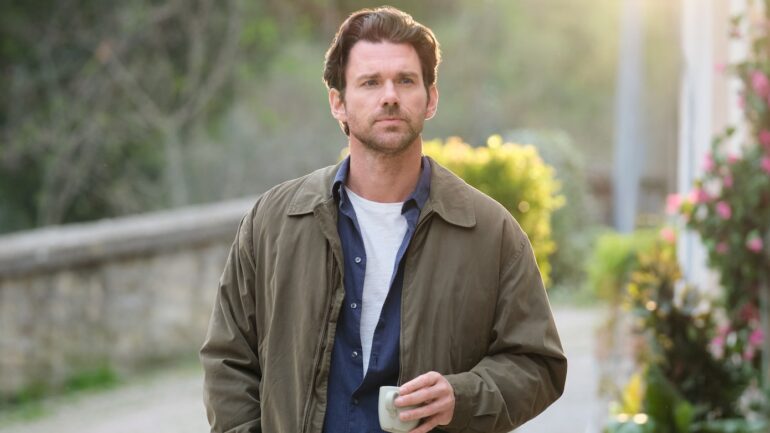TV Romance
Jesse & Jane Weren’t Just ‘Breaking Bad,’ They Were Hands-Down a Bad Couple

It’s been over a decade since we gasped, sobbed, and stared blankly at our screens during the final episode of Breaking Bad, and yet we still can’t stop thinking about it or talking about it. It’s giving Mean Girls energy: When Cady just keeps word-vomiting about Regina George, we keep word-vomiting about Breaking Bad.
And today, the word-vomit subject is our sweet angel face, Jesse Pinkman (Aaron Paul), and why—deep breath—it’s actually not a great tragedy that his girlfriend, Jane Margolis (Krysten Ritter), died. In fact, it might have been the best thing for Jesse… and for the show.
Let’s get this out of the way: Jane’s death was absolutely awful. It’s painful, brutal, and honestly unforgivable that Walter White (Bryan Cranston) just stood there watching her choke and did nothing. Her death shattered Jesse and changed the course of his entire life.
But… was Jane really good for him? Would the show (and Jesse’s character) have evolved the way it did if she had lived?
Jane and Jesse met when she became his landlord, and sparks flew immediately. Their art gallery-meet-cute was peak indie romance energy—Georgia O’Keeffe, comic books, rebellious vibes. Jesse lit up around her in a way we rarely saw. He was happier, more confident, and seen.
Jane didn’t treat Jesse like a junkie or a lost cause. She saw his soul. And for someone who was constantly belittled, especially by Walt, who never stopped questioning his intelligence, that kind of unconditional love was a balm. Jane built him up in a way no one else ever really had.
But Jane and Jesse shared more than chemistry—they shared addiction. Two people trying to get clean while also dating each other can be a ticking time bomb. There’s a reason 12-step programs strongly discourage dating in early recovery. It’s a slippery slope, and Jesse and Jane slid fast.

Lewis Jacobs / AMC / Everett collection
Once they relapsed into heroin use, their love story shifted from romantic to destructive. They were no longer helping each other heal; they were enabling. Jane, especially after her relapse, became manipulative. She pressured Jesse to blackmail Walt for money, further isolating him. She became fixated on the money. Their bond turned toxic. It’s codependency in its purest form: intense, addictive, and deeply unhealthy.
Jane didn’t force Jesse to use heroin, but she opened the door. And Jesse, craving love and escape, walked right through it. Jane’s death wasn’t just a plot twist. It was a seismic shift in Jesse’s world.
Jesse completely blamed himself. He didn’t know that Walt let her die, so all the grief crashed down on him like a freight train. It was this guilt that sent him to rehab. Not to get clean, initially, but because he was numb, hollowed out, and no longer wanted to be alive.
Jane haunted Jesse. Literally, she showed up in dreams, in hallucinations, in the way he flinched around children in danger. Her death became the wound that drove his desperate attempts to do good, to save someone, to be better. Her death was the catalyst in this reaction.
It cracked something open in him. He started asking questions about the real consequences of the drug world—not just for himself, but for everyone caught in the blast zone. He didn’t care about hurting himself, but losing Jane made him finally wake up and recognize that their actions have consequences.
If Jane hadn’t died, would Jesse have ever met Andrea? Andrea Cantillo (Emily Rios), the kind, grounded single mom he met in NA, was a whole different kind of love story. She offered Jesse something real: stability, gentleness, and the beginnings of a family. Her son, Brock (Ian Posada), became like his own.
It’s possible that if Jane had lived, Jesse might’ve kept chasing “manic pixie dream girls” like her—relationships full of highs and lows, all intensity and no anchor. But Andrea? She’s calm seas, a quiet harbor. Of course, thanks to stupid Todd (Jesse Plemons), that ended in tragedy, too. Ugh. Still not over it.
Jane’s death didn’t just devastate Jesse. It defined him. It stripped away his innocence, killed off his idealism, and set him on a painful, deeply human path of reckoning. Let’s be honest, they were never going to make it to New Zealand. They were a flame that burned hot but fast.
Without Jane’s death, there’s no Jesse spiral. No reckoning with guilt. No slow, shattering transformation from comic relief sidekick to the broken, tragic anti-hero we see by the end of the series. It all came full circle in El Camino when we finally saw Jesse break the cycle, escape, and start over.
Jane Margolis was the love that wrecked Jesse—and the loss that shaped him. In the brutal logic of Breaking Bad, Jane’s death was the moment Jesse stopped being a pawn in someone else’s game and started becoming his own person. Damaged, yes. Haunted, absolutely. But free.






